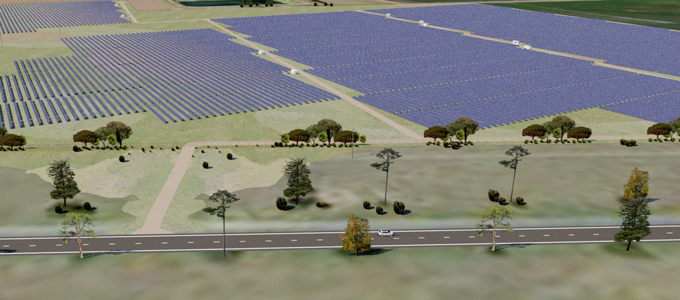Oakey Solar Farm

Client: Canadian Solar
Location: Queensland, Australia
Date: March 2017
Supporting the development of valuable renewable power generation from the Australian sun
Background
The 100 MWp Oakey Solar Farm, west of Towoomba, Queensland, was planned and developed by Canadian Solar. It is a two-stage project of 30 MWp and 70 MWp. The first stage started construction in March 2017, with the second stage due to start in January of 2018. Oakey stage 1 involves 88 000 ground-mounted solar PV panels on 50 hectares using single-axis tracking, generating enough renewable energy to power around 10 000 homes.
RCR O’Donnell Griffin is undertaking the engineering, procurement and construction of the project. Entura was engaged by the project developer, Canadian Solar, to act as owner’s engineer for first stage of the project.
With utility-scale solar energy relatively new in Australia, Canadian Solar faced the challenge of ensuring the implementation of the project achieved high quality standards whilst adhering to budget and audit requirements. Entura was ideally placed to provide this service and the necessary oversight, with comprehensive knowledge of local standards and requirements, as well as experience with solar technology, design and performance, and utility generator connections.
Solution
In the role of owner’s engineer, Entura was responsible for the concept and detailed design review including the array layout, civil works, AC and DC design, SCADA and structural elements. We also reviewed management plans, procurement specifications, environmental compliance and the proposed inspection test plans for construction.
During the construction phase, Entura is providing advisory and technical support, review of commissioning test results, and HV auditing and pre-commissioning.
Outcome
During the design process, Entura identified a range of design improvements and provided a critical role in ensuring integrity of the tracker piles. We provided rapid turnaround and guidance on a full range of issues faced by the client during the design process, avoiding unnecessary additional costs in the EPC contract and delays in connection and energisation.
The project was completed in 2019 and began commercial operations that same year.


